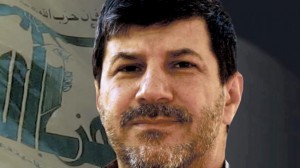Special to WorldTribune.com
NICOSIA — Hizbullah has been dealt a harsh blow by the death of its leading weapons specialist.
Israeli officials said Hassan Al Laqis, assassinated at his home on Dec. 4, was responsible for the Hizbullah missile and arms buildup in Lebanon.

The officials said Al Laqis developed Hizbullah’s air defense, rocket and unmanned aerial vehicle units for war against Israel.
“It’s a harsh blow for Hizbullah, which has tried to present the assassination [as Israeli] in order to distract from internal wrangling and divisions in Lebanon brought on by the Syrian [civil war],” Israeli Energy Minister Silvan Shalom said.
Al Laqis was believed to have been the most powerful military official in Hizbullah since Imad Mughniyeh, the group’s operations chief killed in 2008. The officials said Al Laqis was responsible for Hizbullah’s rocket development and helped procure the current arsenal of an estimated 100,000 missiles and rockets.
Officials said Al Laqis had been assigned to lead the recovery of Hizbullah in wake of the war with Israel in 2006. They said Al Laqis procured Western wireless communications systems, computers, night-vision goggles and components from fronts in Europe and the United States.
“He was one of the most important electronic minds of the organization,”
the Lebanese newspaper Al Akhbar, linked to Hizbullah, said. “He was the
second most important person assassinated after that of operations officer
Imad Mughniyeh.”
Al Laqis was also said to have been responsible for the delivery of
Iranian missiles and other weapons from neighboring Syria. In 2013, Israel
intercepted several shipments of what were reported to have included
long-range rockets and surface-to-air missiles.
“He was the address on the other side of the efforts to smuggle advanced
weapons systems from Syria to Hizbullah,” Israeli defense analyst Amos Harel
said.
Officials said Al Laqis also served as a key Hizbullah liaison to Iran’s
Islamic Revolutionary Guard Corps. They said Hizbullah secretary-general
Hassan Nasrallah sent Al Laqis as an intermediary to improve relations
with the Iranian leadership in wake of the debacle of the war in 2006.
“Al Laqis was completely low profile and very few people outside the
organization knew of him,” an official said. “This allowed him to travel
without much security both in Lebanon and Syria.”

You must be logged in to post a comment Login